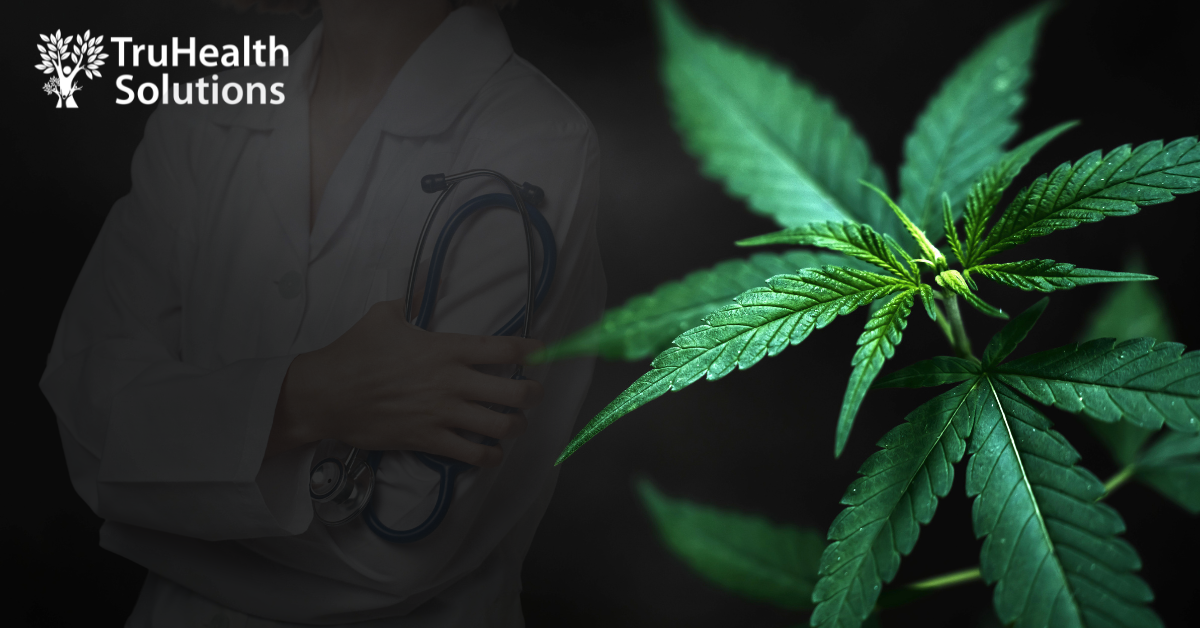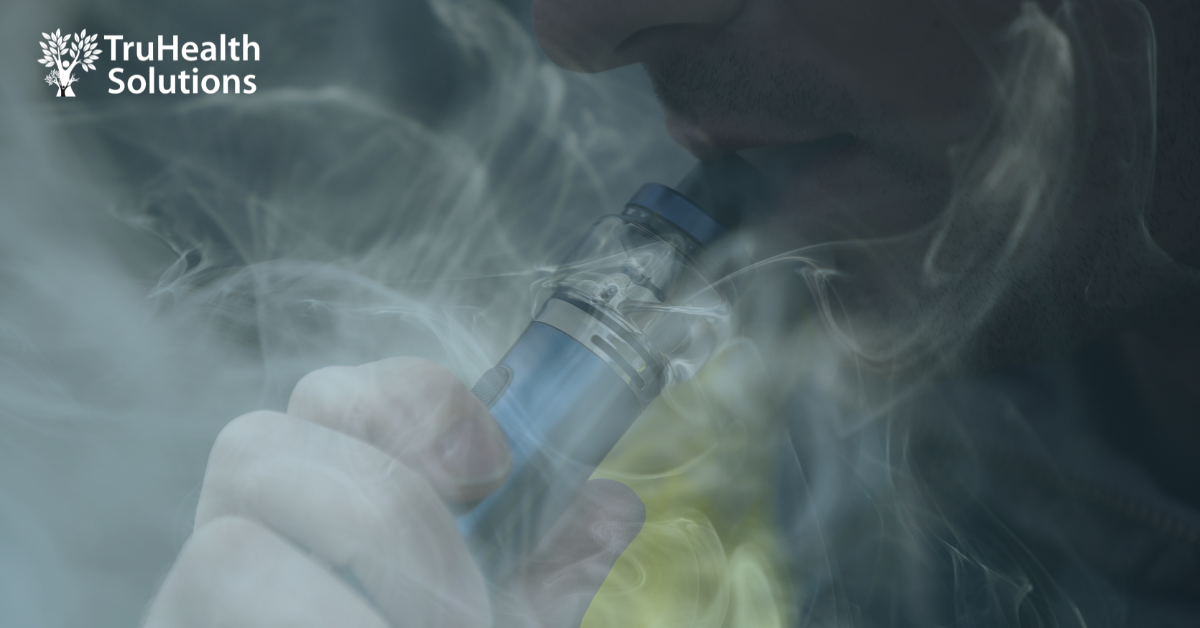Research compiled by Helen Truscott – Occupational Health and Hygiene Manager – Truhealth Solutions – RN, RM, MPH, GDipTMH, DipWHS, CIPC-A
With the changes in legislation around the use of cannabis for certain medical conditions, we have seen an increase in incumbent staff and pre-employment candidates who are either on medicinal cannabis treatment program or who are long-term users waiting to be accepted onto medicinal cannabis treatment program.
THC (Delta-9-tetrahydrocannabinol) is a psychoactive substance that has been shown to impair cognitive and motor function, increasing the risk of being involved in a motor vehicle crash. Impairments that will affect a person’s driving include their ability to anticipate hazards and unexpected situations, their decision-making, and their ability to respond quickly to changes in the traffic environment (e.g., reaction time). THC can also interact with other medications, impairing the metabolism of other drugs or causing cumulative effects such as sedation.
Medical THC preparations are likely to impair and affect safety, impairment has fitness for duty considerations and is likely to affect insurance claims for workplace injuries/ liability for damages incidents.
The degree of impairment of THC can impair the user’s ability to perform complex tasks. Complex tasks cover most aspects of modern work, except for activities of daily living (Tynan, 2022).
Complexities arise when a workplace either has no Drug and Alcohol Policy, or the policy has not outlined its stance on workers using medicinal cannabis in a drug and alcohol policy, for workers in safety-critical roles.
The Queensland Government advises that it is illegal for any patient being treated with medicinal cannabis containing THC to drive while undergoing treatment. Accessing medicinal cannabis | Health and wellbeing | Queensland Government (www.qld.gov.au).
This is in line with the Zero Tolerance approach by Queensland Police for driving with THC and there may be penalties as a result of roadside testing for Methylamphetamine, MDMA (in ecstasy, and THC. Most of the other states and territories have similar legislation governing driving and THC.
The Queensland Transport Operations (Road Use Management) Act 1995 – Section 79 states that:
(2AA) Offence of driving etc. while relevant drug is present in blood or saliva Any person who, while a relevant drug is present in the person’s blood or saliva—
(a) drives a motor vehicle, tram, train or vessel; or
(b) attempts to put in motion a motor vehicle, tram, train or vessel; or
(c) is in charge of a motor vehicle, tram, train or vessel;
is guilty of an offence and liable to a penalty not exceeding 14 penalty units or to imprisonment for a term not exceeding 3 months.
The Therapeutic Goods Administration (TGA) has listed some conditions that specialist doctors can prescribe cannabis for, but there is very limited evidence to support the use in other conditions, such as chronic pain and mental health ( Tibbo et al., 2020) Are There Therapeutic Benefits of Cannabinoid Products in Adult Mental Illness? (cpa-apc.org)
These approved conditions include:
- Epilepsy in children
- Multiple Sclerosis (MS)
- Chronic non-cancer pain
- Chemotherapy-induced nausea and vomiting
- Palliative care
Rules are different across states and territories for prescribing cannabis.
Accessing medicinal cannabis for a patient | Therapeutic Goods Administration (TGA)
Medicinal cannabis – guidance documents | Therapeutic Goods Administration (TGA)
Discussion:
There are 2 types of medicinal cannabis products:
- THC containing (Delta-9-tetrahydrocannabinol) which is psychoactive (THC containing medicinal cannabis will generally produce a non-negative result on an onsite urine drug test and may also on an oral fluid screen but will be dependent on the time of dose relative to the time of performing the Oral Fluid test).
- Cannabidiol (CBD), CBD oil does not contain any THC and, as such is not psychoactive (CBD oils will not result in a non-negative on an onsite drug test)
If the product contains THC tetrahydrocannabinol (psychoactive component), the patient is required to sign a consent form that acknowledges that they cannot drive or operate heavy machinery. Accessing medicinal cannabis | Health and wellbeing | Queensland Government (www.qld.gov.au)
In Queensland, the Public Health (Medicinal Cannabis) Act 2016 was revoked in 2019 and medicinal cannabis was placed in the same class as prescription drugs (Schedule 4) or drugs of addiction (Schedule 8) under the Drugs Misuse Act 1986.
The prescription must be for a legal product, prescribed by an approved Dr and dispensed by an approved pharmacist.
A medical practitioner who prescribes medicinal cannabis to a person must:
- comply with any TGA conditions, including gaining informed written consent from the patient.
- comply with any Queensland Health conditions.
- if requested, provide a written report to Queensland Health that may include patient response and frequency of use.
- report any adverse or unexpected effects to the TGA.
The cost of medication may be prohibitive to continue with the program when compared with the cost of buying marijuana and often even when on a medicinal cannabis program, people will supplement with additional non- prescribed THC.
There are four pathways to access medicinal cannabis:
- Authorised Prescriber – Established History of Use pathway
- Authorised Prescriber – Standard pathway
- SAS Category A notification pathway
- SAS Category B application pathway
If THC is accessed via the TGA scheme, the user is required to ensure that they follow the conditions of prescription, and the Notice of Approval clearly notes that the user SHOULD not drive or operate machinery whilst they are being treated with medicinal cannabis.
There are four categories of medicinal cannabis products, depending on the proportion of cannabidiol by category, and contain different percentages of THC from 0%-98. Oral preparations have a slower onset of efficacy, and the effects may last for up to 8-24 hours. (TGA).
Medicinal cannabis products by active ingredients | Therapeutic Goods Administration (TGA)
Medicinal cannabis – guidance documents | Therapeutic Goods Administration (TGA)
Accessing medicinal cannabis for a patient | Therapeutic Goods Administration (TGA)
Workplace Safety-Critical roles and medicinal cannabis.
Workplaces may elect to test for cannabis in saliva or in urine and the cut off levels will vary depending on the screening method. Drug testing in saliva in accordance with Australian Standard AS/NZS 4760:2019 – Procedures for specimen collection and the detection and quantitation of drugs of abuse in oral fluid, has a cut off level of 15 ng/mL for Cannabis (THC parent).
Drug testing in urine in accordance with AS/NZS 4308: Procedures for the collection and detection and quantitation of drugs of abuse in urine, has a cut-off level of 50 µg/L for Cannabis metabolites.
2016 Austroads and National Transport Commission Report Assessing Fitness to Drive 2022. Edition, states that cannabis use is associated with an increase in road trauma.
(Part B Medical Standards) also discuss that a decline in cognitive ability can interact with other medications that could cause cumulative effects AP-G56-22_Assessing_Fitne, anss_Drive.pdf (austroads.com.au)
Part 6, Section 176 – Jet’s Law – eligibility if mental or physical incapacity is likely to adversely affect the ability to drive– this is the legislation that the TMR uses to apply, along with the Aust Roads Assessing Fitness to Drive Guidelines. www.tmr.qld.gov.au
View – Queensland Legislation – Queensland Government
Assessing fitness to drive Part A, 2.2.9 discusses the effects of delta-9-tetrahydrocannabinol (THC) and cannabidiol (CBD) THC can affect the ability of a driver to drive, as even low doses can impair concentration, cognition and induce dizziness.
- THC can be detected in urine for up to five days to be excreted in urine (80-90%)
- Driving with any THC in blood is an illegal and criminal offense in Australia
- Insurance implications
- Impaired driving (lane weaving)
- Combined cannabis and alcohol
The medical condition that the person is taking the THC for, also needs consideration when making Fitness for Duty determinations, alongside the use of medicinal cannabis.
Summary:
- Medicinal THC products are likely to cause impairment, in cognitive and motor function.
- Impairment has fitness for duty considerations.
- Road Law in most states holds zero tolerance for driving with THC in blood.
- Queensland Law states that it is illegal for anyone who is being treated with medicinal cannabis containing THC, to drive or operate machinery whilst undergoing treatment
- Onset of effects varies from person to person and preparation used and effects can interact with other conditions.
- The medical condition that the person is taking the THC for also needs consideration for Fitness for Duty
- If non-negative samples are sent to the lab, the lab will not include in their report if the result would be consistent with medication declared as part of the medicinal cannabis treatment program.
References:
AS / NZS 4760:2019 – Detection and Quantitation of Drugs in Oral Fluid AS / NZS 4308:2008 – Detection and Quantification of Drugs in Urine. https://infostore.saiglobal.com
Austroads and National Transport Commission Report Assessing Fitness to Drive Guidelines 2022. (Medicinal Cannabis Working Group) 22_Assessing_Fitness_Drive.pdf (austroads.com.au)
Department of Transport and Main Roads Transport Operations (Road Use Management _ Driver Licensing) Regulation 2021 www.tmr.qld.gov.au
Queensland Government- Transport Operations ( Road Use Management – Driver Licensing) Act and Legisla
Tibbo, McKee, K. A., Meyer, J. H., Crocker, C. E., Aitchison, K. J., Lam, R. W., & Crockford, D. N. (2021).
Are there therapeutic benefits of cannabinoid products in adult mental Illness? Canadian Journal of Psychiatry, 66(2), 185–194. https://doi.org/10.1177/0706743720945525
Tynan P, Toxicologist, Safe Work Laboratories (n.d)





